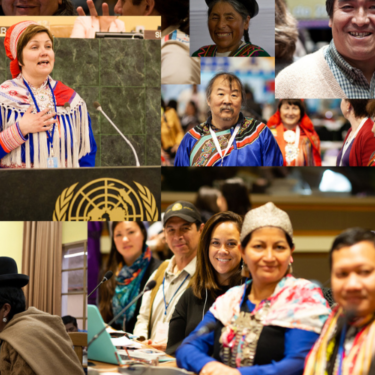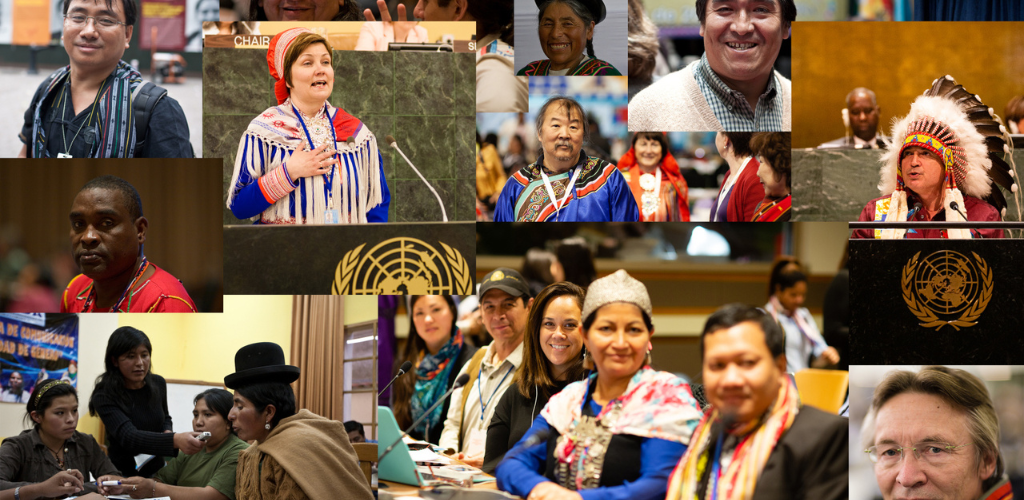
Being an ally to Indigenous people isn’t difficult, from calling legislators to learning town names
By Fatimah Ali, 2022

Tuesday is the 28th annual International Day of the World’s Indigenous People. It commemorates the first meeting held by the U.N. Working Group on Indigenous Populations of the Sub-Commission on the Promotion and Protection of Human Rights. Each year on this day, governments and organizations come together to participate in educational seminars and meet to discuss the prominent social issues Indigenous peoples experience worldwide.
Themes are geared toward addressing pressing topics. This year’s theme is “The Role of Indigenous Women in the Preservation and Transmission of Traditional Knowledge.” It aims to emphasize the importance of the role Indigenous women play as the carers of natural resources and keepers of scientific knowledge.
This year’s virtual commemoration will also give space to acknowledge the overwhelming violence and discrimination Indigenous women face, and provide a platform for Indigenous speakers to share their experiences and expertise.
In addition to attending the commemoration, learning about the Indigenous people who originate and reside in our communities is another way to show solidarity and support.
In Cambridge, we must recognize that we live on the Indigenous land of the Massachusett tribe. We must also acknowledge the relationship between Indigenous people and the land on which we live and their place as they practice their cultures today.
Acknowledging Indigenous languages, such as the Algonquin language spoken by the Massachusett, is another great way to support Indigenous culture. Learning the Indigenous names of the towns and cities we live in can prevent these languages from dying out, which are important parts of history and culture.
Advocating for the rights of Indigenous peoples is another key to allyship. In 2016, the City of Cambridge unanimously passed the Indigenous People’s Day resolution, acknowledging the need to update historical inaccuracies and celebrate Indigenous culture and history.
Today, there are five bills in Massachusetts you can support for the 2022 Indigenous legislative agenda. By attending rallies and advocating for these bills by contacting your state representative, you can help protect the rights of Indigenous people in our communities.
This summer, I began my own journey with active Indigenous allyship. Growing up in Western and Central Massachusetts, I had always been cognizant of the presence of Native communities where I lived. When asked to support History Cambridge in creating a hub for the Indigenous People of Cambridge, though, I noticed shortcomings in my knowledge of Indigenous history, culture and key issues the communities face now. In building this hub, I want to acknowledge the ways in which our institutions have perpetuated false narratives about Indigenous people’s place throughout history and in the present.
Though it is only the beginning of this project, I hope that by reframing our understanding of history to recognize that Indigenous people have been and will always be here, we can continue to reexamine the colonialist structures of learning about our history. It is our responsibility to give equitable space and show our support to Indigenous people, especially as we live on and benefit from their traditional lands.
Do you want to learn more about the Indigenous People of this area? The continuously evolving Indigenous Peoples History Hub has online resources, curated works and much more. Learn more here.
Fatimah Ali is an intern this summer with History Cambridge researching the history of Indigenous people in Cambridge. She is a rising senior at Wellesley College studying architecture with a concentration in urban studies.
This article was originally published in our “Did You Know?” column in Cambridge Day.
